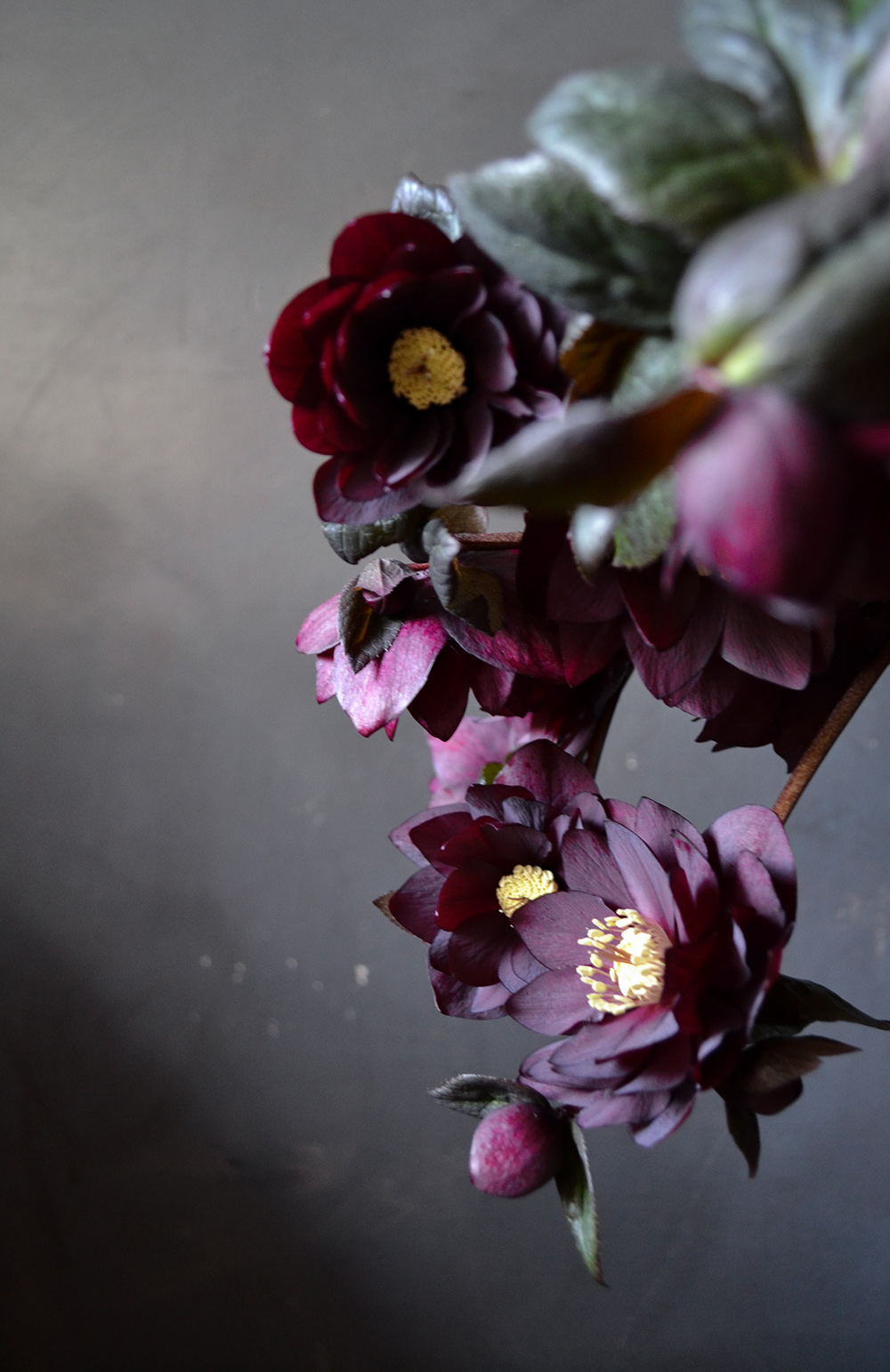Ellen Douglas, Botany, AU.
Ellen Douglas took the uncertain step of launching an online flower business during a COVID lockdown. Her goals were to create a new marketing model, promote an aesthetic that bucked current retail floral design trends, and put sustainability principles first. Two years down the track, Botany is thriving.
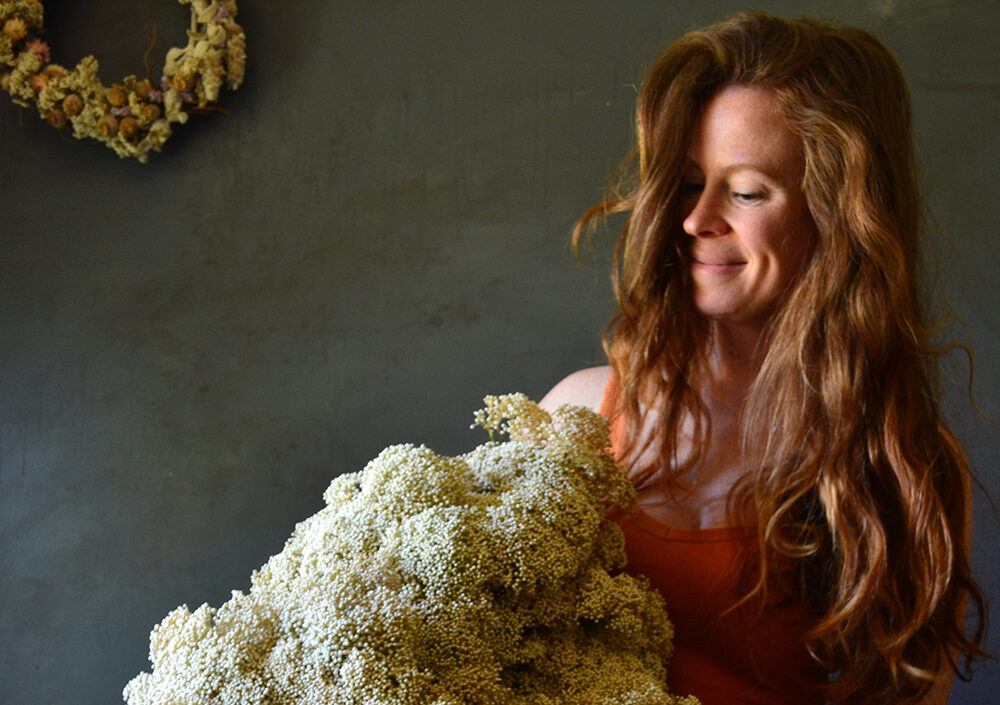
Work history/background?
When I left school I had one wish for my career – to become an illustrator, most likely for children’s books. Drawing had been my love all the way through school and it was what I wanted to do for the rest of my life. After completing an illustration course at TAFE, I was left with the realisation that I would be employed on a commission basis for the rest of my life, not knowing when the next paycheck would come in. I knew I could never live like that, and was left lost.
I worked odd jobs for a few years before seeing an ad at my local florist (Dromana) for part time work. I have to say my view of the floristry industry at that time was pretty low – I thought floristry was something you ended up doing if you had no other skills (sorry florists!) – but it was creative and did not involve sitting at an office desk, so I thought what the heck. That was in 2009.
Fast forward 13 years and here we are – I still love it and understand now that floristry absolutely requires skills to be done well. Once I completed my apprenticeship I never looked back and still enjoy it every day. I find some aspects of it quite similar to illustration, in that you need to consider colour, texture, negative space, shape and work them all together; the only difference being you begin creating with something that already looks beautiful, rather than a blank sheet of paper.
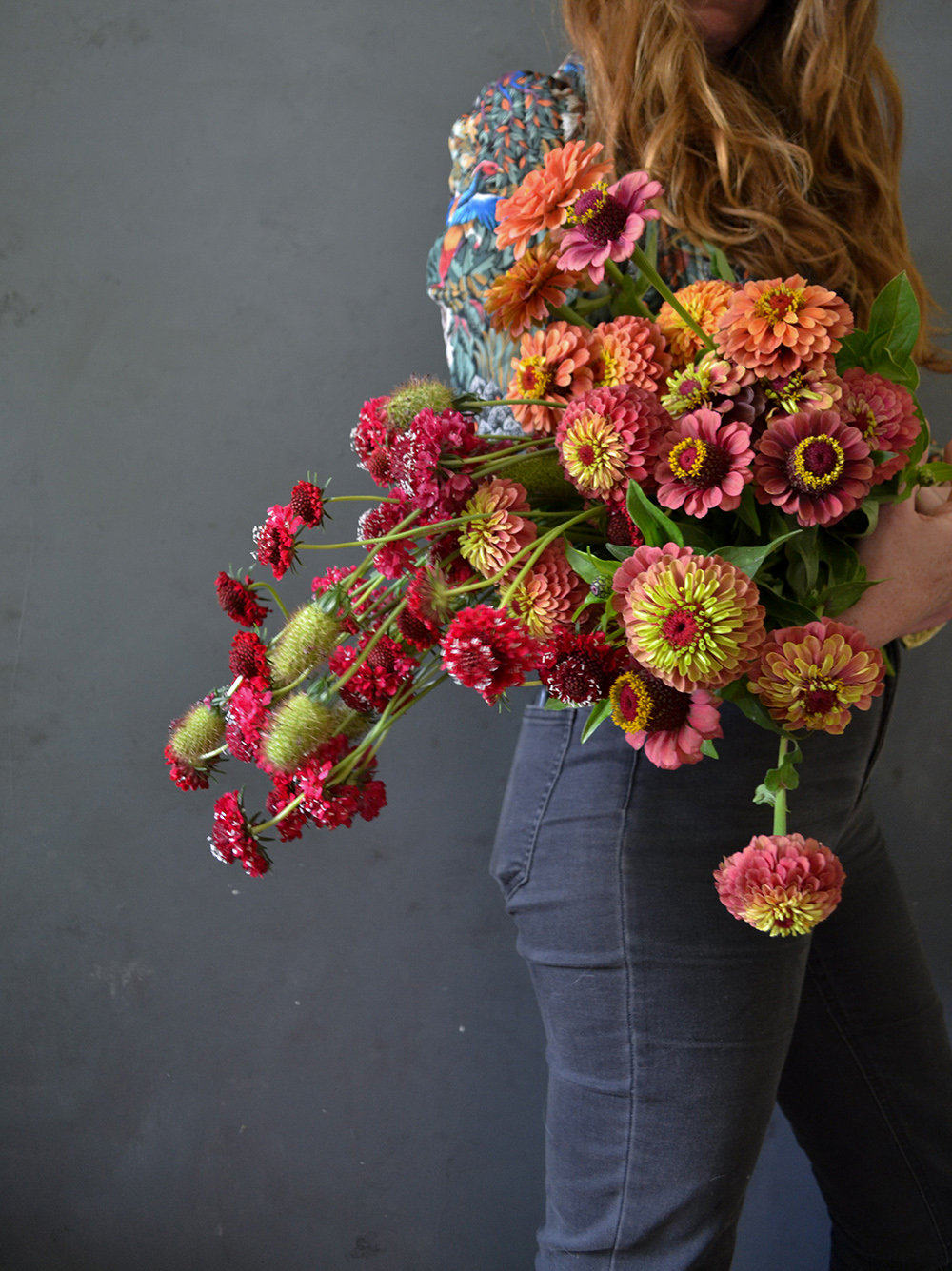
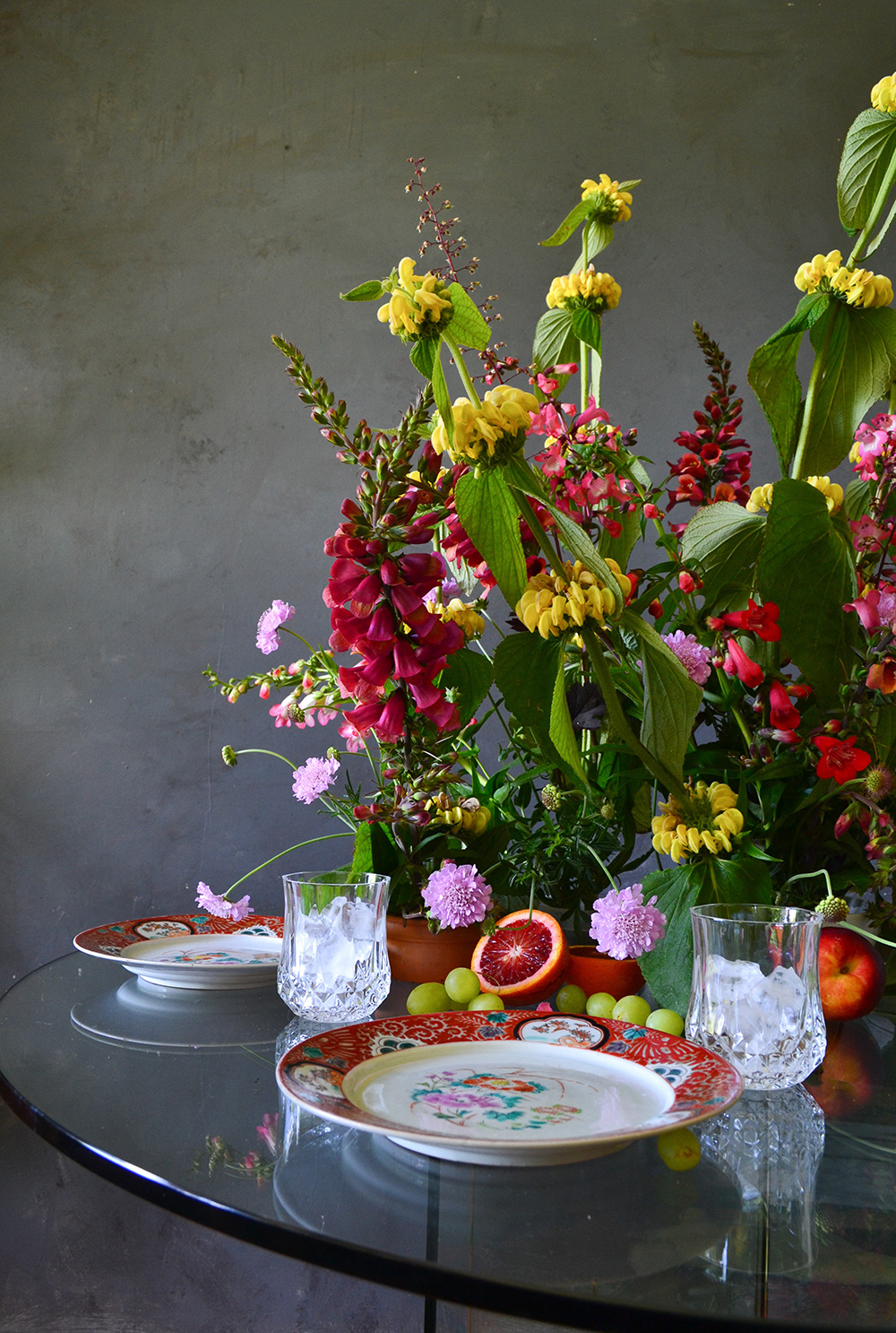
What has the impact of COVID been?
When COVID hit and we started going into lockdowns, the shop I was working for – like many others – did not know how they were going to continue to pay their staff if they could not continue trading as normal, and I was let go from managing the store I was at. I had already been considering starting my own business, and over the previous 18 months had been studying digital marketing online, so without the lure and safety of full-time work stopping me I decided it was finally time to do something about it.
I signed up with the New Enterprise Incentive Scheme (NEIS), which is a course run by the Australian Government to help train new business owners. I did the course online and shortly after completing it I launched Botany in July 2020 – right in the middle of Melbourne’s COVID lockdowns.
During the NEIS course we talked about the timing of launching a new business and how much it can affect its success. What seemed like terrible timing actually turned out, in hindsight, to be probably the most perfect time to launch an online florist. Whilst we were all stuck at home, with strict rules for leaving the house or restrictions on the distances we could travel, people were missing birthdays, anniversaries, the birth of friends’ babies, graduations, funerals, cancelling their weddings – and the whole while we were all slowly falling into pandemic depression from the lack of social interaction.
One of the only ways we could reach out to each other was to send flowers. They became our lifeline and our connection to each other, and the perfect way to lift our collective spirits. As I had structured my business to specialise specifically on home deliveries (an area that I felt was not being well catered by businesses outside relay services or get-what-you’re-given type options), it turned out to be incredible timing for Botany.
Floristry is hard work: low wages & long hours
I have definitely experienced issues with the low wages and questionable OHS situations in the past. I believe the issue exists because floristry is not regarded as a trade, and therefore the skills are not valued in the same way. In Australia you do not need to hold a qualification to become a florist, therefore floristry wages come under the retail award and are subject to the same rates.
There is also no industry standard for the mark up on flowers. This creates competition through price cutting, which unfortunately in some businesses has a flow on effect to staff wages. When we look at sustainability within floristry, ethical business practices need to be addressed under the same umbrella. Sustainability in business does not just relate to the environment, but to employers and employees, both in the florist shop and throughout the whole supply chain.
In regards to the long hours, it is definitely part of being a florist. Buying flowers is done early in the morning and packing up events is done late at night. To avoid burnout it is very important to balance these and structure your business in a way that works for you. For Botany, that meant focusing on home deliveries, operating during the day, and opening Monday to Friday. This creates a routine in my week that I have never had in my career before, and future-proofs the business so that as I age it will not take its toll on my physical health.
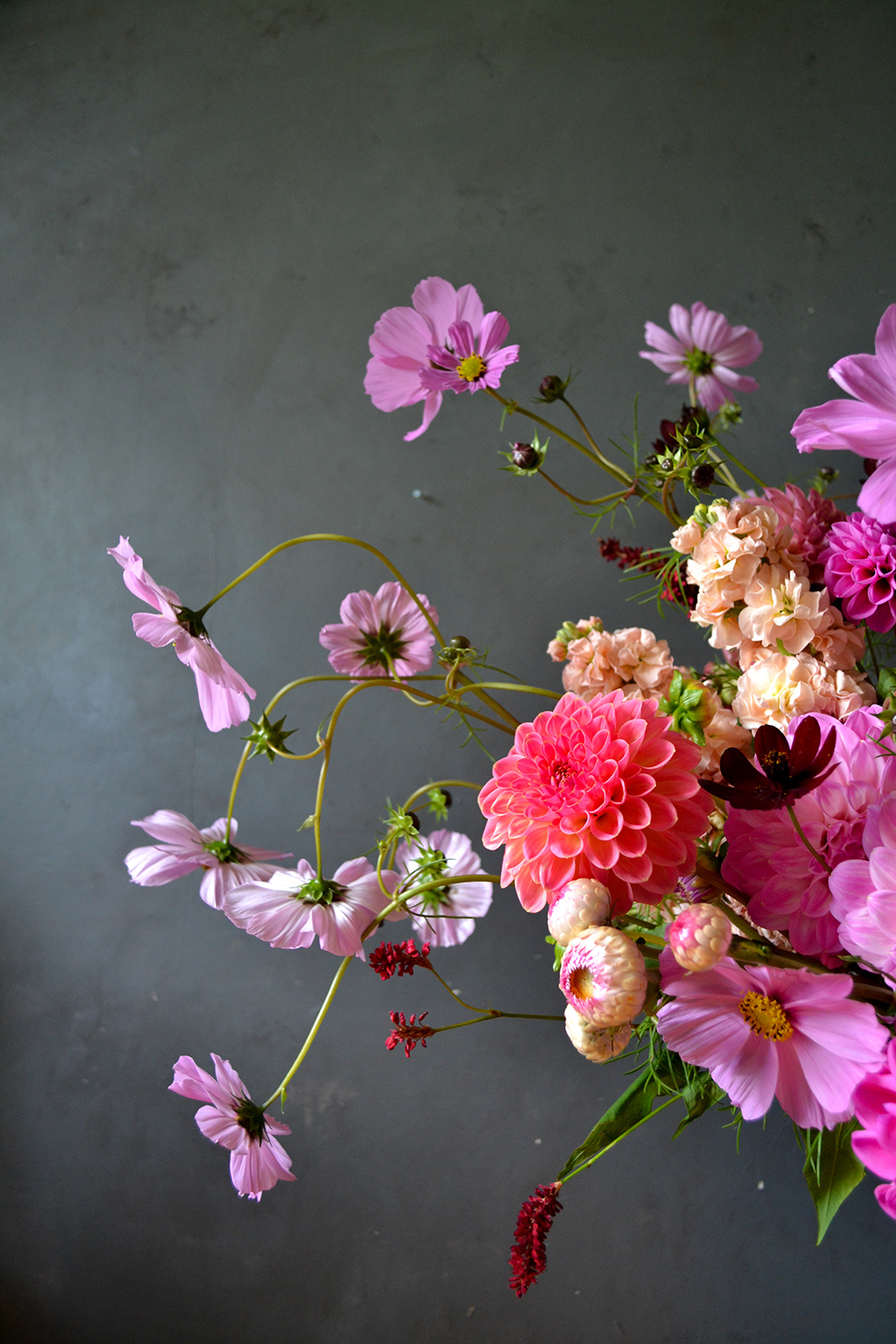
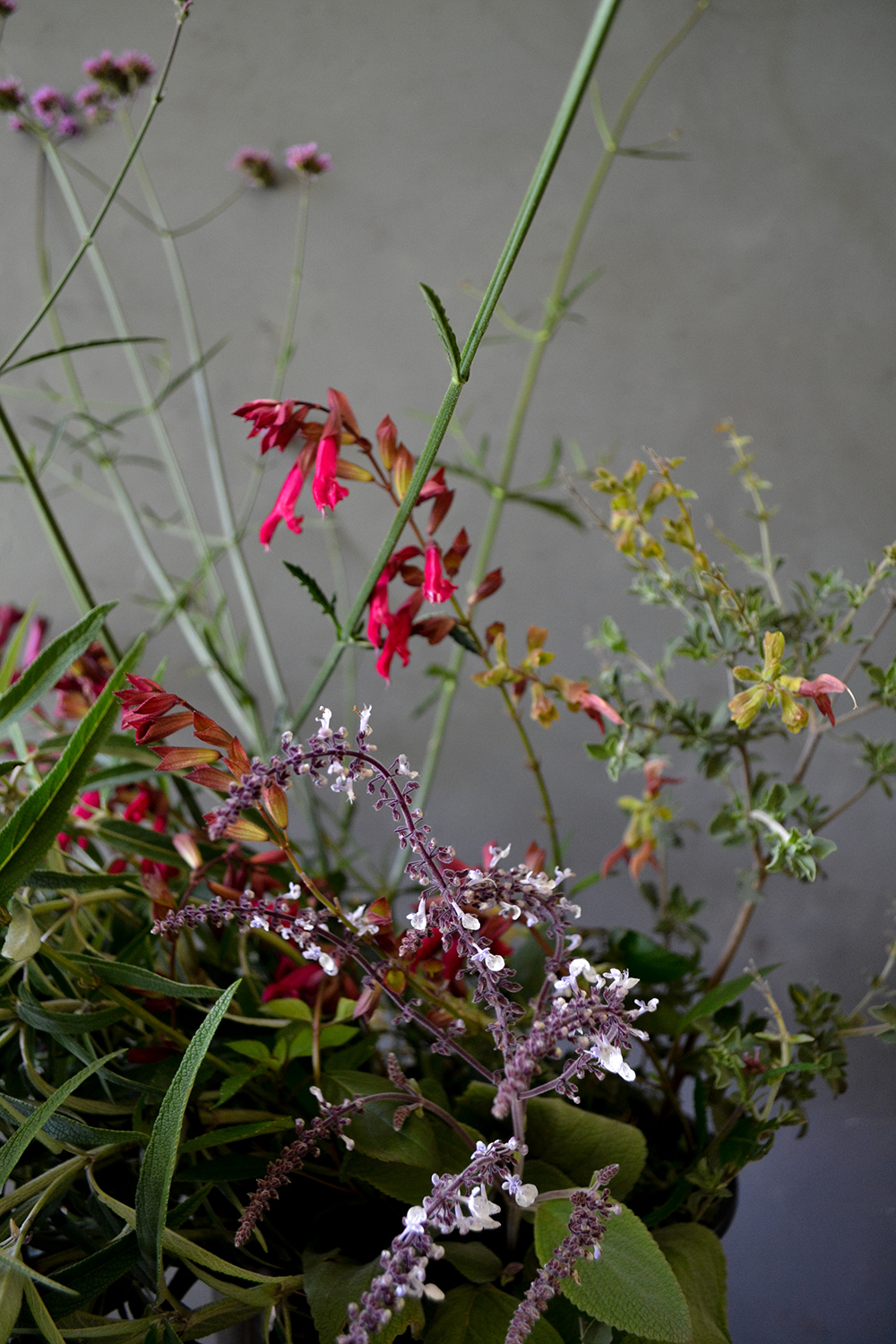
Currently the part of my job that gives me the most joy is picking up product directly from the farms. I never used to do this until I started this business. But when you see how proud a grower is of their product, and chat to them about everything that’s in the buckets, and ‘ooh’ and ‘ahh’ over it with them because you are both so flipping excited, it just makes my day. Then of course taking that excitement and those flowers back to the studio, you are full of inspiration about what you are about to create.
The things that I have struggled with have changed over the years. When I first started it was just having the confidence to recommend flower combinations to a customer in store (I was very shy), then it was sending out a wedding quote thinking I’d never hear back, then eventually of course it was my brain seeing past all of the beautiful flowers to the huge amount of waste that came with them. This was the catalyst for me that led to one of the proudest moments in my career – which was having the guts to start a business that could change people’s perceptions of a florist.
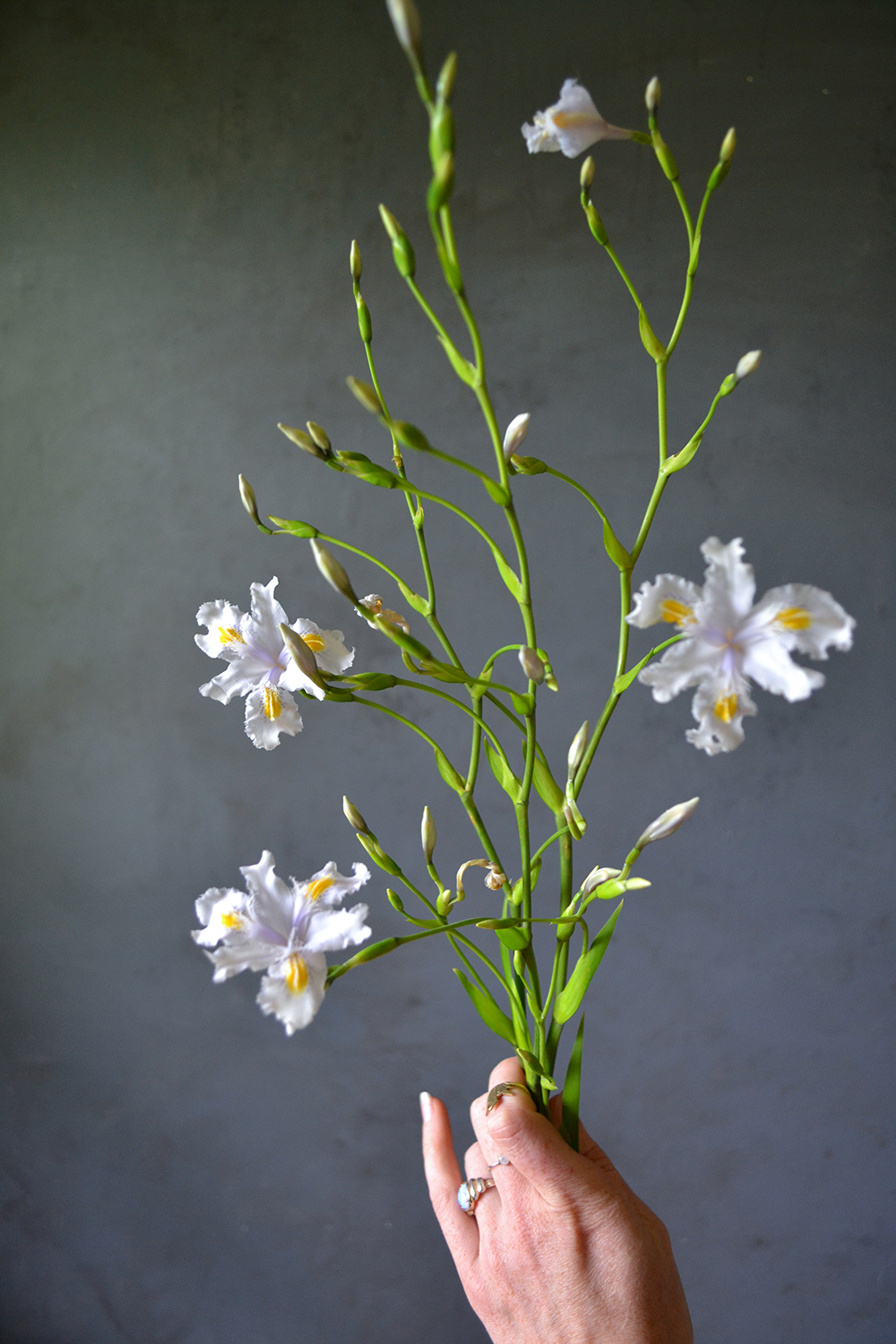
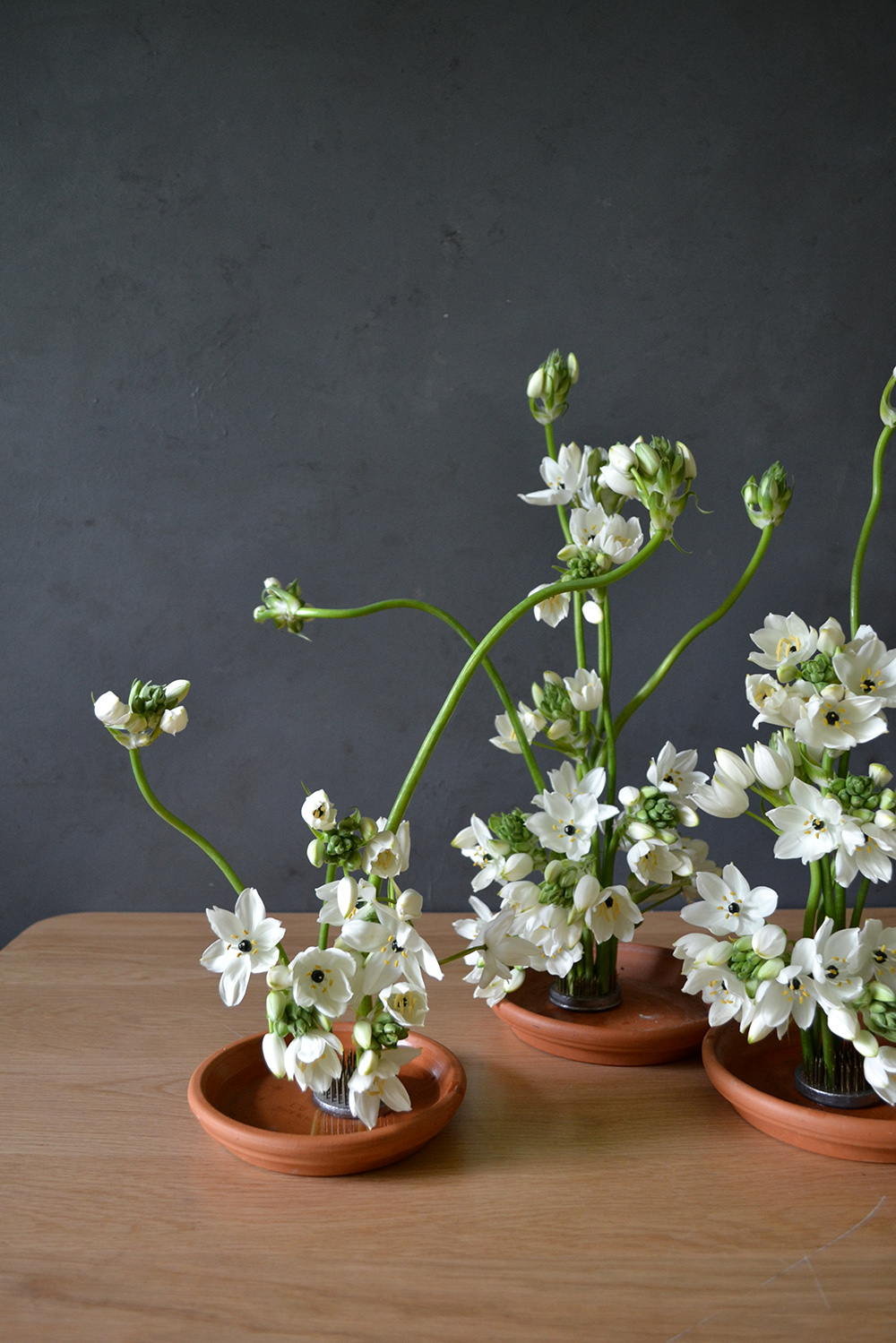
Social media + floristry; positive or negative?
The social media beast! Haha! This answer to this definitely goes both ways. The image-based social media platforms like Instagram and Pinterest have been a great tool for showcasing our work. Because of this, global trends have become more readily available to both florists and customers, and since their launch I feel like the overall quality and creativity of floristry has increased significantly.
But parallel to this has been an increased confusion about localised seasons, a greater demand for out-of-season availability of flowers, and customer demand for floral material that has been altered from its original state (such as bleached, dyed and painted product).
That said I believe that social media can be used well and can contribute to increased consumer education and a shift in trends. Whilst our industry is still very much caught up in unsustainable practices, florists are now aware of the pressure for businesses to take responsibility for their environmental impact. The businesses that are slow or unwilling to adapt to this demand will eventually suffer.
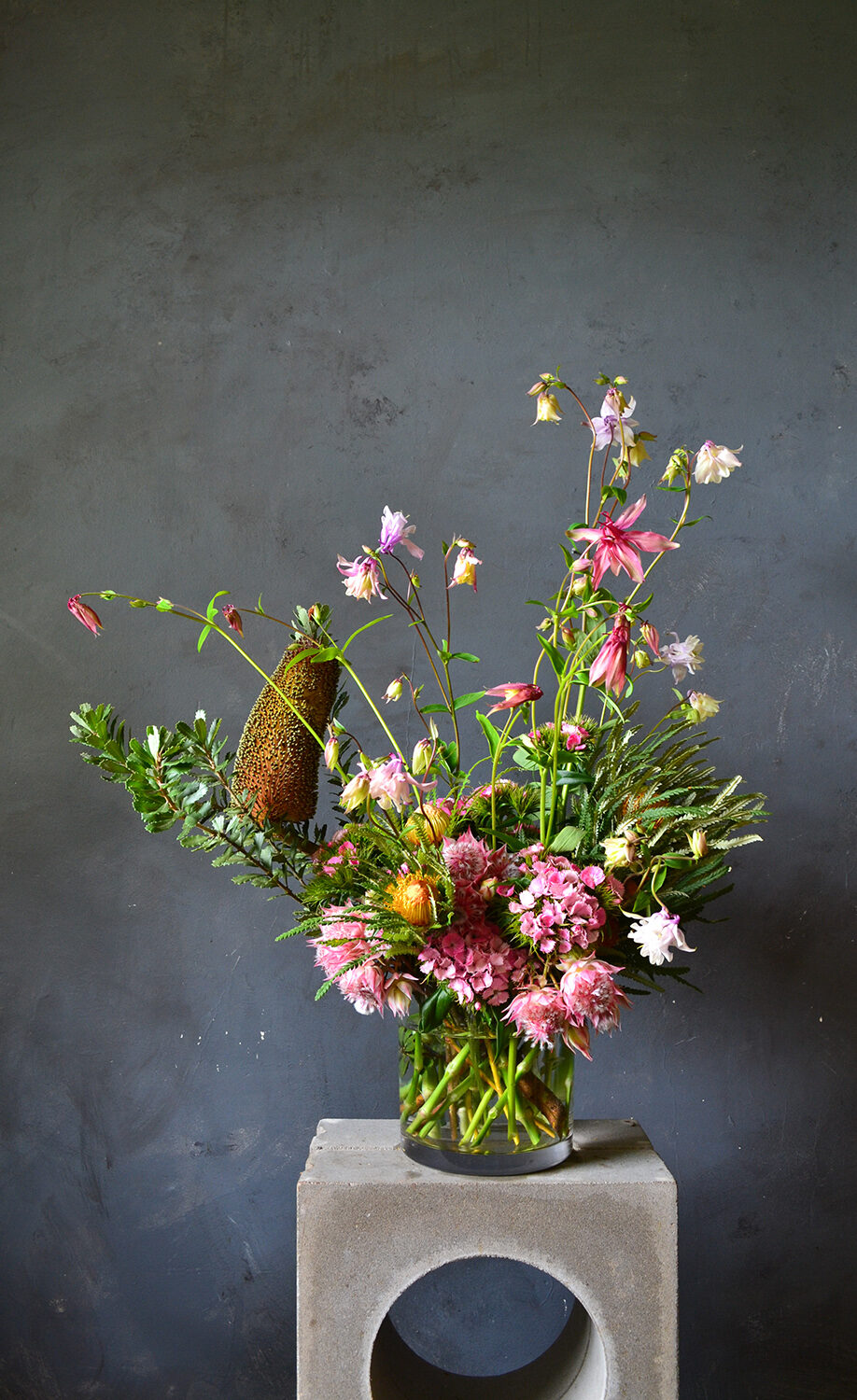
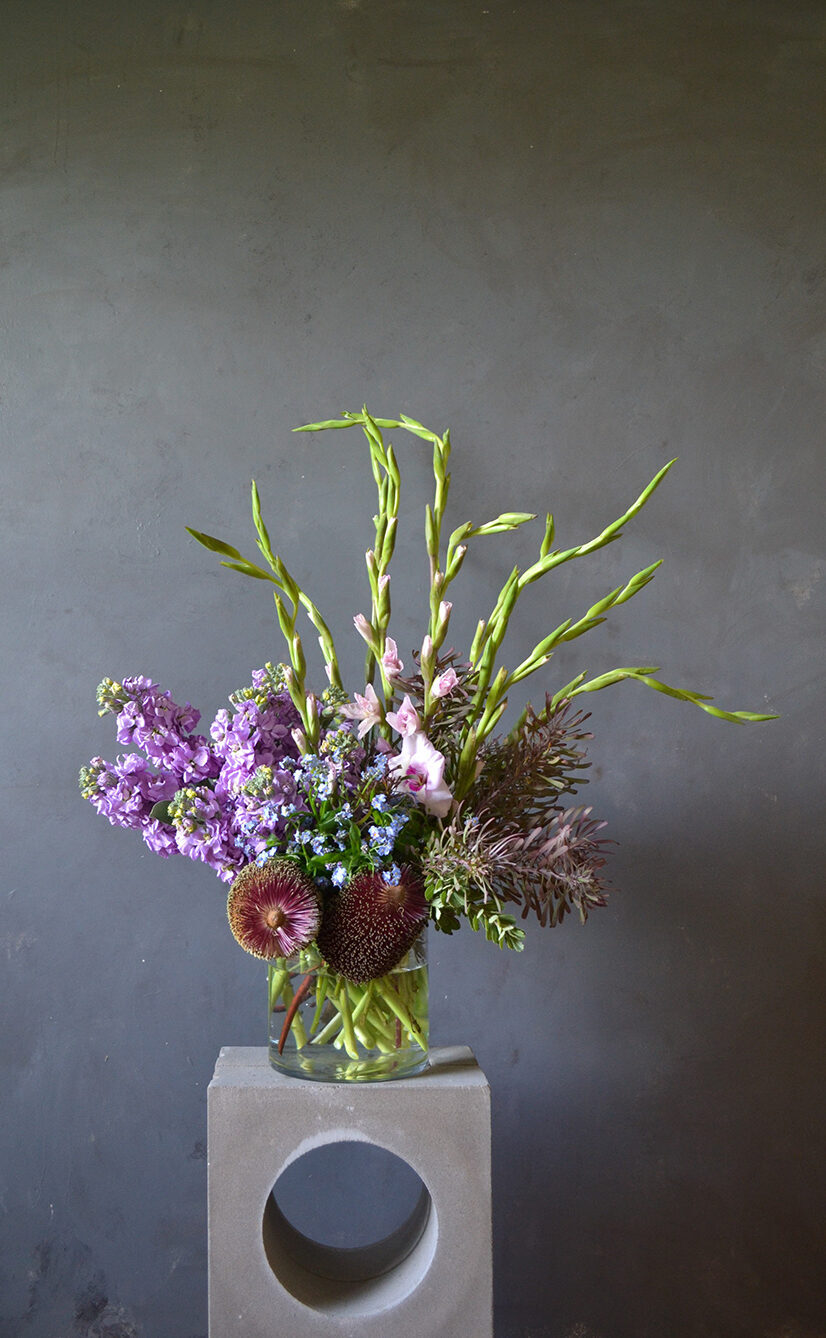
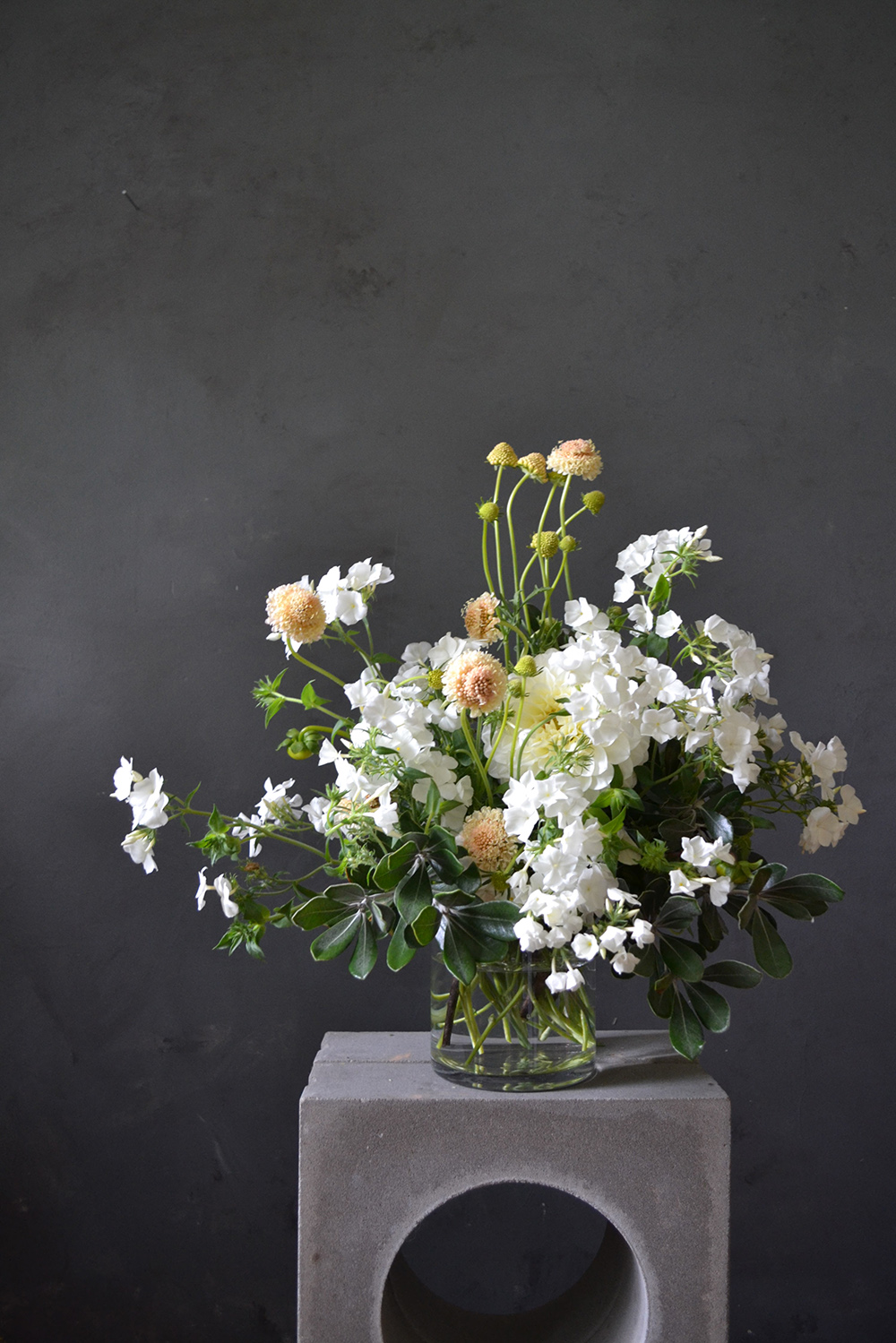
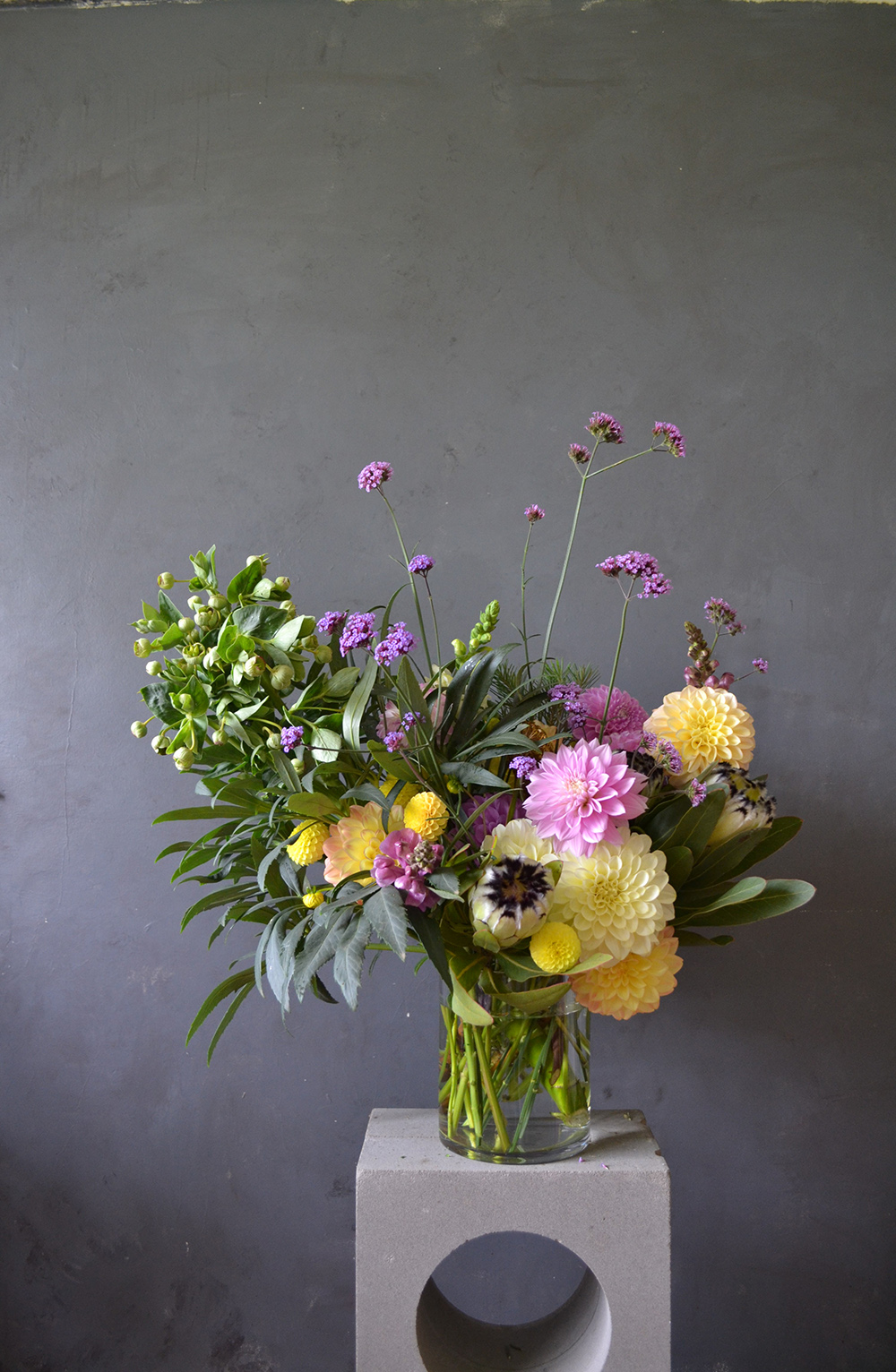
Florists — hiring employees/what do you respect in other florists?
I currently run the business on my own, with the occasional help from my partner, Haas. I hope to eventually take on employees but I know this is a huge responsibility and am aware of the pitfalls in our industry in regards to this.
I would say that skills are hugely important to employers. Many small businesses will put off hiring until they are absolutely desperate for help, and therefore may not have the time to train new staff. It’s a common misconception that anyone can arrange flowers, and whilst this is true, it’s also true that anyone can cook a pasta – but that doesn’t mean you would walk into a kitchen and ask for a job as a chef. It’s always good to do some sort of training before looking for work as a florist.
The florists that I admire and respect are either incredible at what they do, have a style that I love, or are aligned with my values and are pushing for the same improvements in our industry.
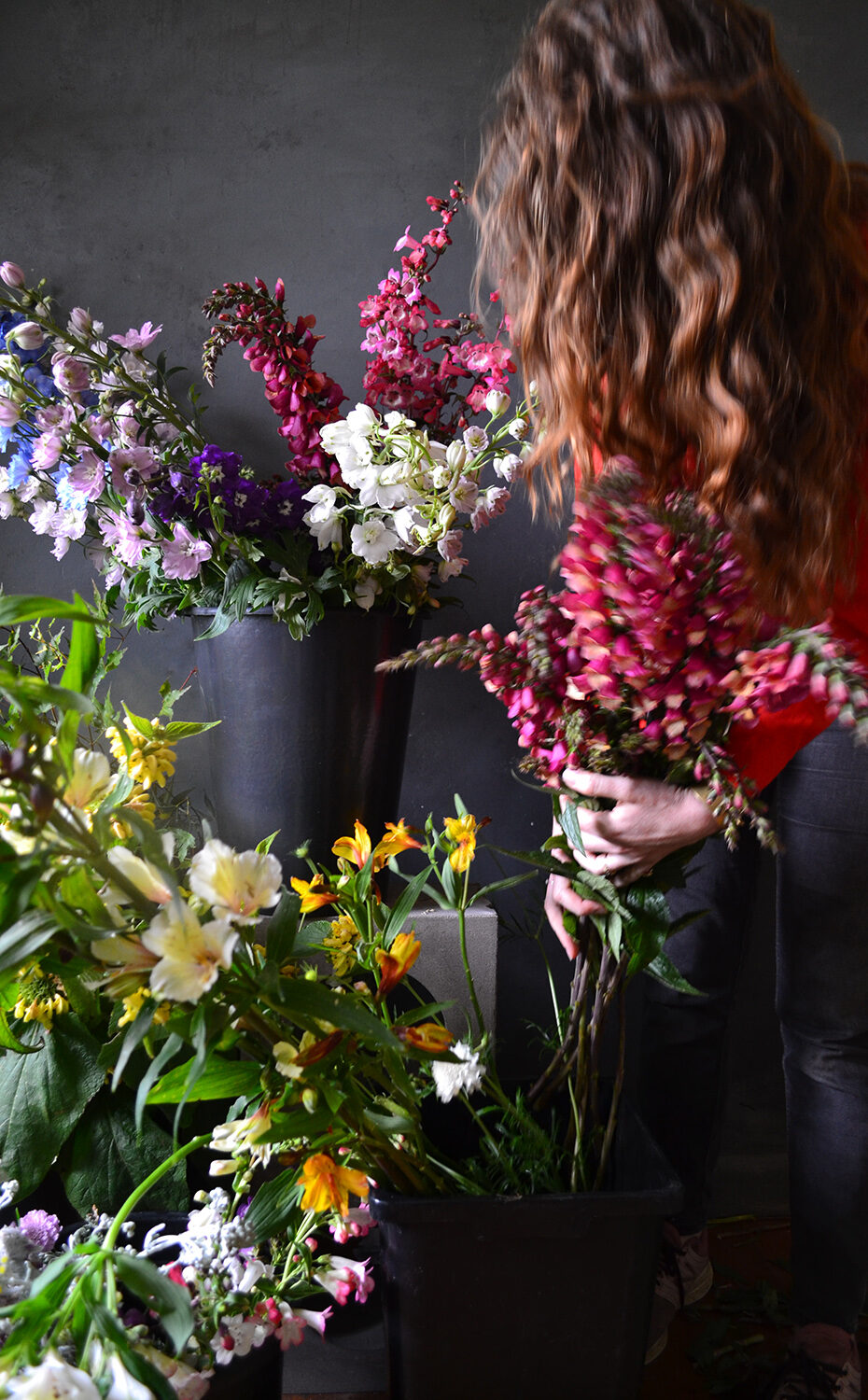
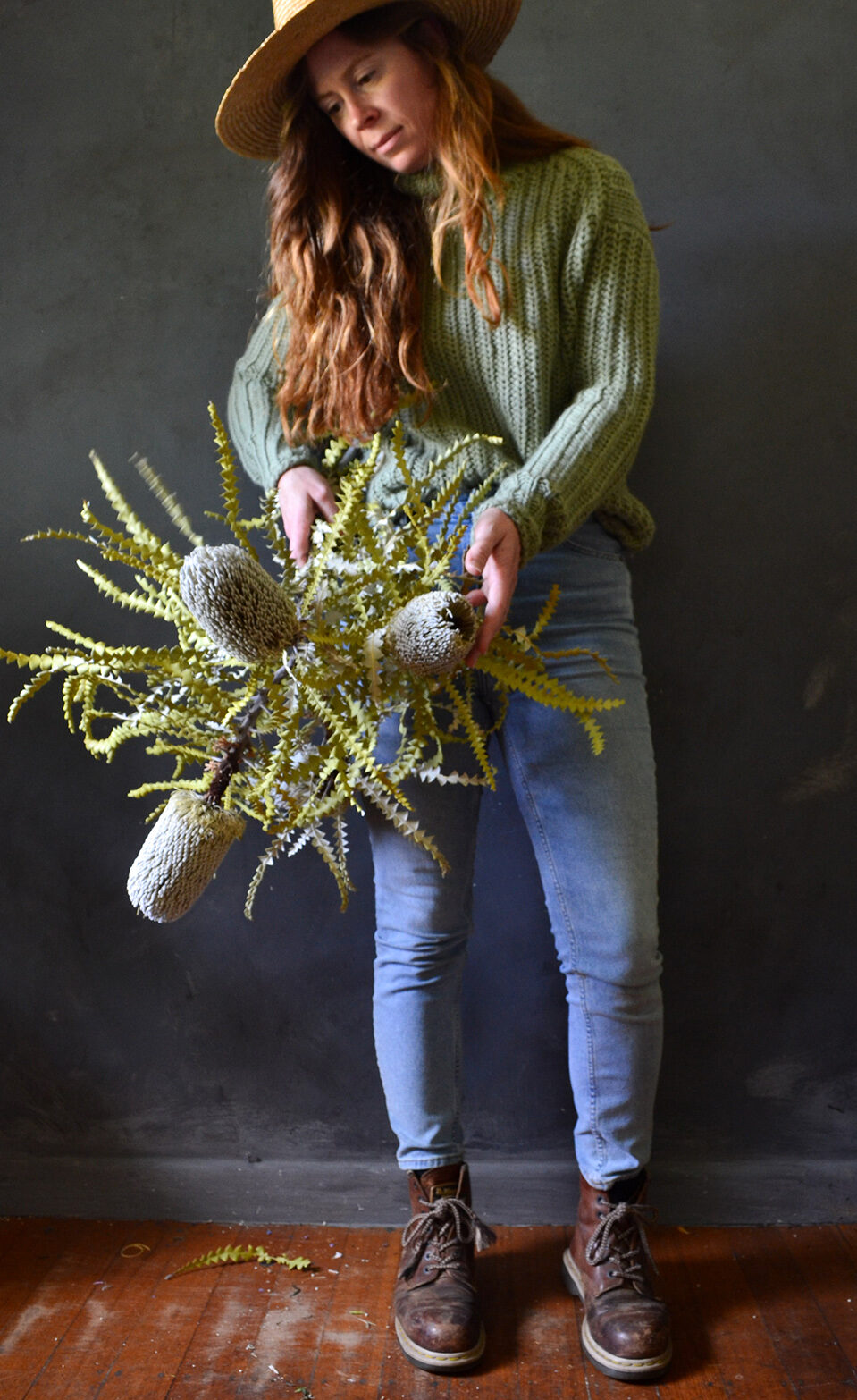
What does sustainability mean to you?
For me, sustainability is constant improvement, adjustment, and betterment of all aspects of the business and it does not have an expiry. There will always be more I can do as the business grows and progresses and as technology advances. Sustainability relates to the environment and everything in it – including us.
To have a healthy environment we also need healthy people, so both need to be looked after properly. As a business the impact we are able to have will change over time and I think it’s important to be transparent with our customers about where we are currently at, so that they can decide if we are the right fit for them.
What attitudes do you believe must change — in consideration of the SFN Principles?
For florists we definitely need to take better care with our waste management. If it means having multiple bins under the work bench (for plastic sleeves, green waste and broken glass/recycling), then do it. If green waste is not currently collected from your store, set it up. If it means conducting your wedding consultations to revolve around colour palettes rather than specific flower varieties, go for it. Explain to your customers why you are making these changes and how amazing they are for the environment – I guarantee they will appreciate it.
For consumers, I would honestly say be sceptical. There is so much misinformation in regards to our industry and I’m sorry. We are not in a great state but we are getting there. The number one thing you can do is to ask questions – was it grown locally, is it natural or altered, can I have it wrapped in plain paper? Appreciate the natural condition of flowers and be understanding that if there is a small mark on a leaf, it’s probably not a big deal. Support small businesses that you trust, and love the seasons of flowers & how wonderful it is to miss them when they’re gone.
Top five tools?
I just have one tool really! My F-type secateurs from Jacksons Japanese Tools. They were a gift from my partner and they are indestructible! I’ve had them for years and yes they are a bit of an investment, but it’s more sustainable to buy a good pair of secateurs once than to buy 10 cheap pairs and keep tossing them away 😉
